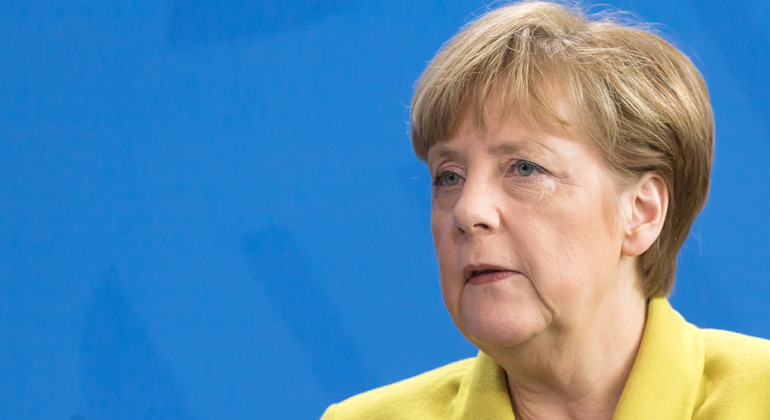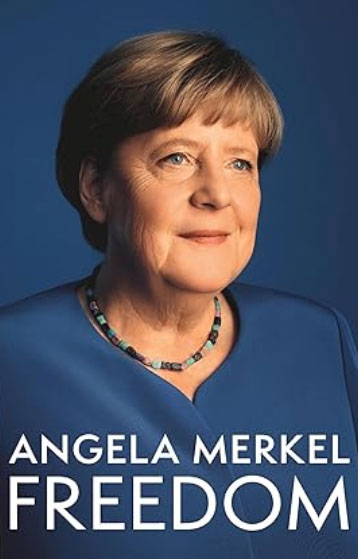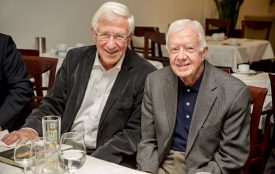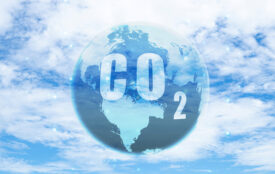Freedom with responsibility
Angela Merkel has simply called her memoirs ‘Freedom’. In doing so, the former Chancellor is emphasising the unconditional and courageous desire for freedom of the citizens of the GDR in 1989.
The other side of freedom is responsibility
We need freedom with responsibility. And a balance, a equilibrium, between economy and ecology. Ernst Ulrich von Weizsäcker calls it: ‘A new enlightenment for a full world.’ In 1989, there were a little more than four billion people on this planet; today there are eight billion.
In the 2015 refugee crisis, Angela Merkel fully lived up to her responsibility. It was a responsibility for the lives and freedom of one million people who came to us. The Christian Democratic Chancellor’s policy created a great ‘welcoming culture’ among the German population. Angela Merkel’s Christian commitment as the leader of a Christian Democratic party also contributed significantly to this, despite strong resistance from fellow party members. In her memoirs, she stands by this without any ifs or buts. Respect. She now told ‘SPIEGEL’: ‘The idea of, for example, setting up water cannons on the German border was terrible for me and would not have been a solution anyway.’
But on other issues, such as climate protection and energy policy, freedom, for example economic freedom, triumphed over responsibility. She is now showing this – after years of delay, little learning experience and hardly any self-criticism – at least in the book. In interviews about the book, she is somewhat self-critical and says that too little has happened in terms of climate protection during her chancellorship.
When it comes to the nuclear phase-out – she is also honest about this – she has said one thing and then another. The former Chancellor’s book has strengths and weaknesses, just like her policies over 16 years. She actually writes in the same way she governed and spoke as Chancellor. In that respect, it is an honest book.
Meanwhile, however, courts around the world are giving their governments lessons in climate protection.
The groundbreaking ruling of the German Federal Constitutional Court at the end of April 2021, i.e. at the end of Merkel’s chancellorship, on more climate protection and similar rulings in the Netherlands and Australia are just a few examples. At least, in response to the ruling by the Constitutional Court in Karlsruhe, her government has decided that Germany should be climate-neutral not in 2050, as originally planned, but in 2045. As Heinrich Böll once said, ‘There is an area of aesthetics that we have not yet discovered: the beauty of the law.’
Germany’s highest court sees climate catastrophe as the greatest danger to the security and freedom of the next generation. Christian Lindner would probably call the laws, regulations and prohibitions that are now necessary to contain this danger ‘socialism’. I call it a social-ecological market economy and am thus closer to Ludwig Erhard than to the neo-liberals of today.
The decision from Karlsruhe states that climate protection is a human right. This makes this landmark ruling ‘the most universal and far-reaching ruling on climate protection that there has been,’ says Hamburg constitutional judge Roda Verheyen, who helped to secure this ruling. Now every law must be subjected to a climate check.
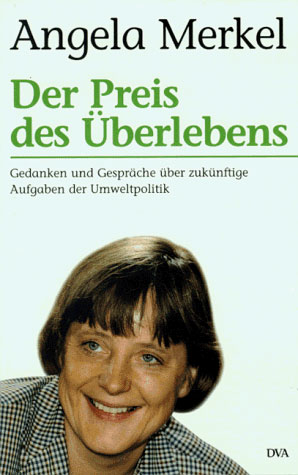
It is not about bans, it is about freedom as Angela Merkel also describes it in her memoirs and as she herself once described it in her book ‘Der Preis des Überlebens’ (The Price of Survival, Deutsche Verlagsanstalt 1997), which, in its radical diction for climate protection, could have come from Greta Thunberg. This book exemplifies the difference between political theory and practice. But it also shows that the future chancellor knew exactly what she did and did not do in terms of climate protection.
The 1.5 degree target from Paris is non-negotiable
We have to make it if we want to be held in high regard by our children and grandchildren. The Constitutional Court says: My older generation cannot take all liberties at the expense of future generations. This should actually be self-evident for true liberals and also for Christian Democrats.
We often forget what the philosopher and psychologist Erich Fromm wrote as early as the 1970s – technology alone will not save us: ‘For the first time in history, the physical survival of humanity depends on a radical psychological change in people.’ ‘Green technology’ alone will not give us a ‘green future’. The challenge is industrial disarmament. Not only growth-driven capitalism is at stake, but also industrial societies as we know them. Conventional capitalism devours its children.
Erich Fromm: However, ‘spiritual change’ is only possible to the extent that drastic economic and social changes occur that give individuals the chance to change and the courage and imagination they need to achieve that change.
Or will capitalism after all become a nature-based promise? We can ensure that the climate issue becomes a decisive factor in the 2025 election year. The key question here is: How do we build a future society of solidarity in an eco-social circular economy? We will only succeed in this, of course, if we learn that freedom always also means responsibility for future generations.
